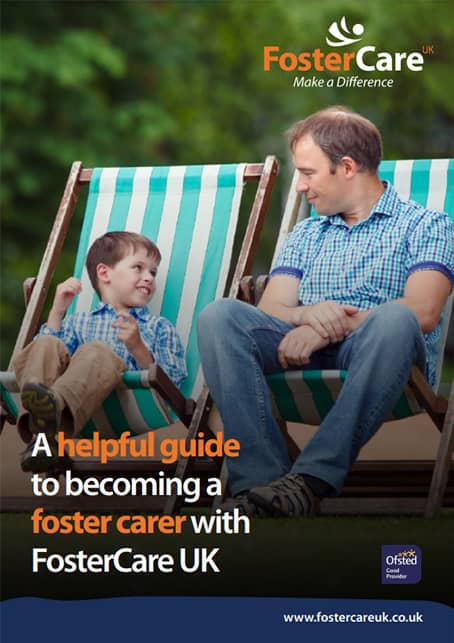


What happens when a child is taken into care?
Benefits of being a foster parent
What is a care leaver?
How to become a foster parent
How to foster a child
What are the foster care requirements
Can I choose who I foster?
Fostering with pets FAQ
How long does it take to become a foster parent?
What is the role of an independent fostering agency?
Fostering a disabled child
Tips for coping when foster placements end
Do foster carers pay tax?
What to expect in a fostering assessment
Common Fostering Challenges and Solutions
What disqualifies you from being a foster carer?
Muslim Fostering
Fostering as a single parent
Can you foster a child with a criminal record?
Can you work and foster?
Top 10 fostering myths
Can I foster if…?
Can I foster and rent?
LGBT Fostering: can I foster if I’m gay
Top transferable skills to become a foster carer
Can you foster with a mental health condition?
Christian Fostering
Sikh Fostering
Cultural Diversity in Foster Care
How to encourage foster children to read
Reasons for a child to be taken into care
Tips for coping with attachment disorders in Foster Children
Fostering vs Adoption
What happens when foster parents get divorced?
What is reunification in foster care?
How to deal with foster child bullying
A guide to the foster care handbook
Guide to fostering young children
Types of self-harm
A guide to fostering teenagers
What are the signs of depression in foster children?
The main difference between fostering and adoption is that individuals who adopt become the child’s new permanent legal parents, and therefore make all parental decisions.
Foster carers have a different role as they look after the children of birth parents, so the decision making for the child or children is shared by the local authority and birth parent(s) - although some decisions can be appointed to the foster carers.
Typically, fostering has a much higher demand than adoption. As of March 2023, there are 83,840 children and young people in foster care in the UK – rising 2% from 2022. This means that many of young children are still in need of a foster home.
With adoption, there are around 2,110 children in need of adoption during the year 2022/23 – showing that there is a much higher demand for foster carers to help change a young person’s life.
With adoption, a child will become part of your family unit permanently - so it’s important to ensure you’re ready for that commitment.
However, with fostering, placements can often last a matter of days, weeks or months at a time depending on the circumstance. Though this could be even longer if the placement is long-term. Which also requires some level of commitment to consider with fostering.
As a foster parent, your first placement is likely to begin fairly quickly. This is also the case for when you are approved as an adoptive parent – however, there is a better chance of having a foster placement who matches the carers’ preferences and skills. Which means that often, this can lead to a higher waiting time for adoptive parents.
When applying to become an adoptive parent, it can be quite costly. You will be required to pay the a fee for processing your application, a medical with your GP which will also cost a certain fee, an assessment fee for any dogs you have as well as other fees that may accumulate over this time. This includes any days off from work to attend training and meetings, travel and childcare expenses.
While foster carers are paid a competitive weekly fostering allowance, there are many costs involved. This includes a certificate of eligibility to be provided, as well as a fee for the process or assessment alone.
As a foster parent, there is extensive support available throughout your fostering journey. From ongoing training and development, to the opportunity to connect with existing foster carers and learn from their experiences. You’ll have access to the full support of a team of professionals who are on-hand 24 hours a day.
Whilst there is some support available for adopters during the adoption process, this becomes a lot less frequent once the final adoption order has been received. There is a grant available for additional support to adopters who are eligible, known as the Adoption and Special Guardianship Support Fund (ASGSF). This is a grant given to regional adoption agencies and local authorities to provide essential therapeutic services for adoptive parents to help support their child with education.
Often, people make the mistake of confusing long-term foster care with adoption, though they are not the same. In foster care, children will be placed with foster carers as long as they need to be. Sometimes this is short term, and if deemed safe by the Court, children may be reunified with birth parent(s) or other family members.
However, many children are made subject to a full care order. This means they need a long-term foster placement to grow up in, until they reach the age of 18 years. For many children in care this will be the permanent plan for them.
The goal of fostering is not adoption. Fostering aims to reunify children or young people with their birth parents and, typically, foster children do not become available for adoption.
However, if you do wish to adopt your foster child, there are some points to consider:
Deciding whether to foster or adopt can be a difficult decision, which can take a lot of time and consideration. If you decide fostering is the right avenue for you, find out why FosterCare UK could be the agency for you.
For more information about who can foster, as well as the different types of foster care available, get in touch with our friendly team of experts on 0844 800 1941 today. We are always on-hand to help answer any questions you may have or to provide more information and guidance around any fostering query.
If you’ve got any questions or would like to find out more about fostering with Capstone, fill out the form below.
An experienced fostering advisor from your local area will then be in touch.

Start the conversation today. Our team of friendly advisors are on hand to answer any foster care questions you may have. We can offer you honest and practical advice that can help you decide if becoming a foster carer is the right path for you.


